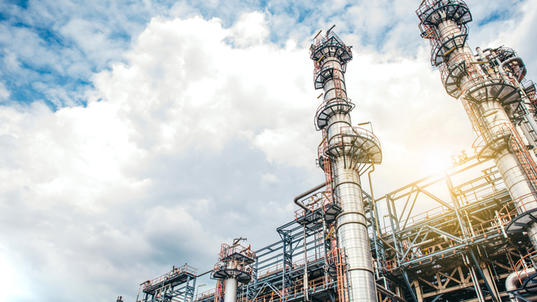Thursday 25 February 2021, London: The first of its kind, a global framework to support policymakers to decarbonise their heavy industries as part of COVID-19 economic recovery plans has been released today. The following civil society groups and major industrial businesses have endorsed the Framework Principles for Global Heavy Industrial Decarbonisation:
Alliance for Energy Efficient Economy, Aldersgate Group, Architecture 2030, Carbon Leadership Forum, Clean Energy Canada, Corporate Leaders Group, Envision, Global Efficiency Intelligence, Global Energy Monitor, Godrej Industries, Jinko Solar, JSW Energy, JSW Cement, LanzaTech, Mahindra Group, Solutions for Our Climate, Tata Steel and United Nations High Level Champions.
By officially endorsing the framework, these influential actors are coming together across sectors to call out the urgent need to accelerate and scale-up the decarbonisation of heavy industry to align with the goals of the Paris Agreement, including the need to limit warming to 1.5°C.
Established by international non-profit the Climate Group and campaign organisation Mighty Earth, The Global Framework Principles for the Decarbonisation of Heavy Industry has been developed in close coordination with industry experts. It’s the first time a set of publicly available global guidelines has provided clear steps for how heavy industries like steel, cement, and chemicals across the world can stimulate economic growth while aligning with a 1.5°C climate trajectory.
The framework sets out six core principles, each of which represent an essential lever that policymakers can use to ensure the successful decarbonisation of steel, cement, chemicals and other heavy industries. These include tying heavy industry public financing to emissions reduction plans, and prioritising investment in low- and zero-carbon technologies that will help phase out fossil fuel use in industrial processes.
Jenny Chu, Head of Energy Productivity Initiatives at the Climate Group said: “In the wake of COVID-19, we have a critical window to reinvent and reimagine our global industrial economy for the better. Time is of the essence to adopt this framework and to avoid locking in inefficient, high-emitting industrial capital. Global leaders need to urgently put these principles into action while collaborating and coordinating efforts to ensure industry moves as a whole, creating a race to the top for a sustainable, just, and healthy industrial future."
Margaret Hansbrough, Mighty Earth campaign director, said: “The last few months we have seen an unexpected cascade of net zero and carbon neutral commitments from steel, cement, and other heavy industry companies. With this framework, these companies and civil society groups are sending a very loud and clear signal to policymakers around the world, they are ready to get to work immediately on serious and collaborative policy measures to keep our planet from heating beyond 1.5C and fulfil those climate commitments with unprecedented urgency and action. Let’s get to work.”
Heavy industry uses about a third of all energy and accounts for roughly a quarter of all global greenhouse gas emissions, which makes this a critical area to focus decarbonisation efforts. However, political leaders have yet to lock in a low carbon recovery for their heavy industries or even make it a top climate policy priority. In the coming months, as Europe, China, Japan, Korea, India, and North America deliberate on recovery and climate policies, the Climate Group, Mighty Earth and their allies will be calling on political and business leaders to embrace this global framework.
